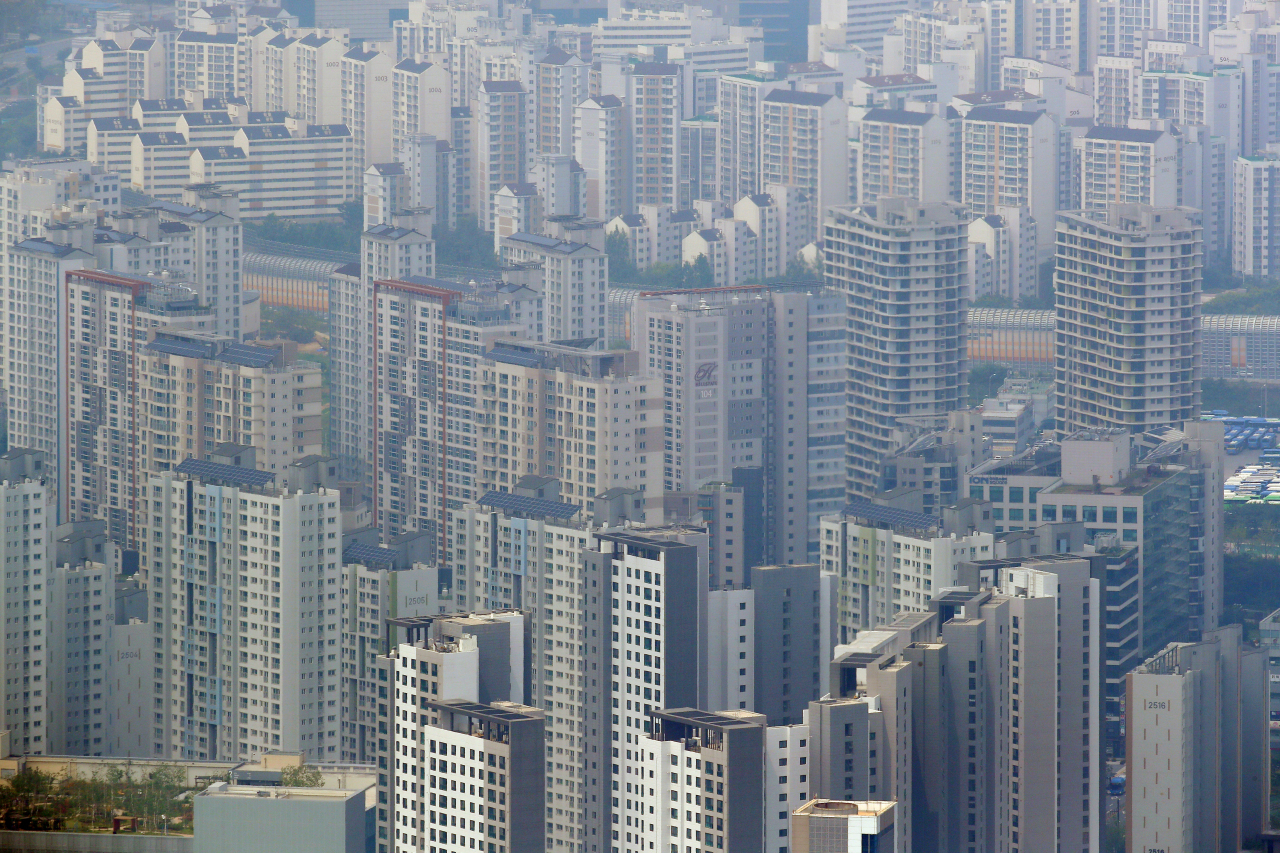Number of taxpayers for property ownership increases with price hike
Tax burden increases for upper-middle tax bracket amid heated market
By Bae HyunjungPublished : July 21, 2020 - 17:01

The number of people subject to pay tax for residential property ownership increased by more than 110,000 last year, while the corresponding tax revenue neared 1 trillion won ($834 million) due to a price hike, government data showed Tuesday.
As the given progressive tax rate is imposed on those who own high-priced residences, such expanded tax yields were seen to reflect the fast increasing housing price hike here.
The number of individuals and companies subject to the comprehensive real estate holding tax for 2019 was estimated at 510,927 and with total revenue of 959.4 billion won, according to data submitted to Rep. Yang Kyung-sook of the parliamentary finance committee. The figures were up 117,684 and 516.2 billion won, respectively, from a year earlier.
The hike was the most conspicuous in the upper-middle tax brackets -- for assets priced between 600 million won-1.2 billion won and between 1.2-5 billion won.
The number of top-tier taxpayers -- those classified in the tax bracket of 9.4 billion won or more -- came to 189, up from 128 a year earlier. Their taxpaying percentage out of the total revenues, however, stayed more or less the same at around 15 percent.
“The fact that the comprehensive real estate tax revenue increased in the upper-middle tax brackets proves that (the principle of) fair taxation has been enhanced,” said Rep. Yang.
The ruling Democratic Party of Korea is currently seeking to effectuate a revised tax law that further breaks down individual tax brackets for expensive houses.
The comprehensive real estate tax was introduced in 2005 under the progressive Roh Moo-hyun administration in an effort to curb the speculative housing market by levying additional financial burden on expensive house owners.
Such actions to steady the real estate market were echoed by the incumbent Moon Jae-in government, which has so far come up with 22 sets of policy measures to cool the overheated housing market.
Notwithstanding these regulations, however, Asia’s fourth-largest economy has continued to see its housing prices escalate over the years.
The gross market value of Korea’s residential real estate reached 5.06 quadrillion won as of the end of 2019, up 7.4 percent from a year earlier and exceeding the 5 quadrillion mark for the first time, according to data compiled by the Bank of Korea and Statistics Korea.
Also, the gross value of real estate -- residential and nonresidential combined -- accounted for 14.12 quadrillion won or 85 percent of the nation’s total wealth, data showed.
By Bae Hyun-jung (tellme@heraldcorp.com)



![[Herald Interview] 'Amid aging population, Korea to invite more young professionals from overseas'](http://res.heraldm.com/phpwas/restmb_idxmake.php?idx=644&simg=/content/image/2024/04/24/20240424050844_0.jpg&u=20240424200058)












![[KH Explains] Korean shipbuilding stocks rally: Real growth or bubble?](http://res.heraldm.com/phpwas/restmb_idxmake.php?idx=652&simg=/content/image/2024/04/25/20240425050656_0.jpg&u=)

